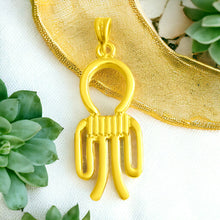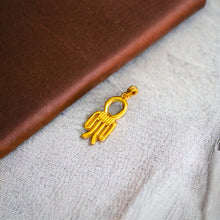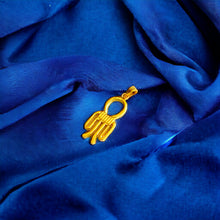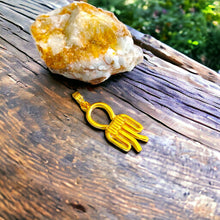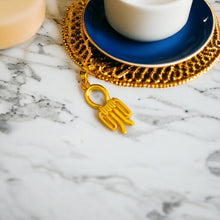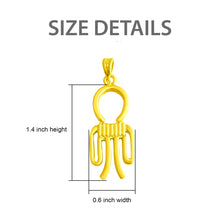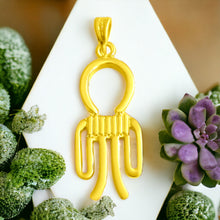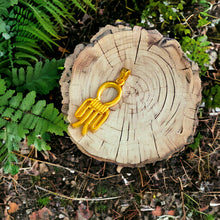
The Goddess Isis Tyet pendant necklace, crafted in gold, is inspired by ancient Egyptian symbolism. The Tyet knot, also known as the "Knot of Isis," is a symbol of protection, life, and health in Egyptian mythology. This pendant necklace pays homage to the rich cultural and religious history of ancient Egypt, reflecting the enduring fascination with its mystique and symbolism.
- History: Inspired by ancient Egyptian culture, symbolizing the goddess Isis and the knot of life.
- Spiritually: Represents protection, healing, and the eternal cycle of life and rebirth in Egyptian mythology.
- Talisman: Believed to bring luck, protection, and spiritual guidance to the wearer.
- Handmade: Crafted with care and attention to detail by skilled artisans.
- Healing: Associated with emotional healing, inner strength, and balance.
- Material Gold: Made from high-quality gold for durability and elegance.
- Symbolism: Represents femininity, motherhood, and the power of creation.
- How to Wear: Can be worn on any chain up to 5mm thickness, versatile for various styles.
- Ideal Gift: Perfect for someone who appreciates spirituality, history, and craftsmanship.
History Side For Those Who Are Interested
The Egyptian Isis Tyet, also known simply as the Tyet or the Knot of Isis, holds significant historical and religious significance in ancient Egyptian culture. The Tyet symbol resembles a looped knot, often with a perpendicular line below it, resembling an ankh, the symbol of life.
Originating in ancient Egypt, the Tyet symbol was closely associated with the goddess Isis, one of the most revered deities in the Egyptian pantheon. Isis was considered a mother goddess, associated with magic, fertility, motherhood, and protection. The Tyet symbol represented these aspects of Isis and was often used in rituals, amulets, and religious iconography.
The exact origins and meaning of the Tyet symbol are not fully understood, but it is believed to have represented concepts such as life, fertility, and protection. Some interpretations suggest that the looped shape symbolizes the menstrual pad worn by women during menstruation, linking it to concepts of fertility and regeneration.
The Tyet symbol was also closely associated with the concept of rebirth and the afterlife in ancient Egyptian religion. It was often used in funerary contexts, such as on sarcophagi and burial goods, to provide protection and ensure the deceased's safe passage to the afterlife under the guidance of Isis.
Over time, the Tyet symbol became more widely recognized and adopted beyond its religious significance, and it came to be associated with concepts of protection, healing, and prosperity. Its use persisted throughout various periods of Egyptian history, including the Pharaonic, Ptolemaic, and Roman periods.
Today, the Tyet symbol continues to be recognized as a potent emblem of ancient Egyptian culture and religion. It remains a symbol of protection and spiritual significance for many individuals interested in Egyptian spirituality and mythology.










